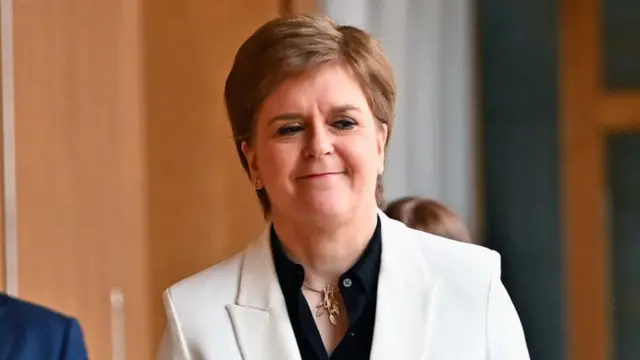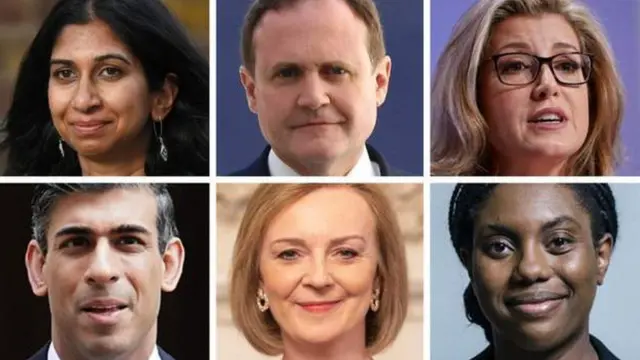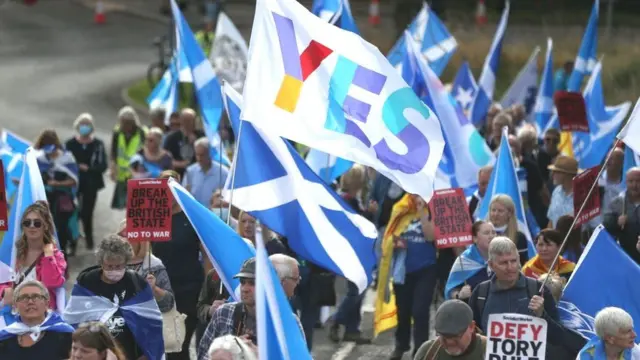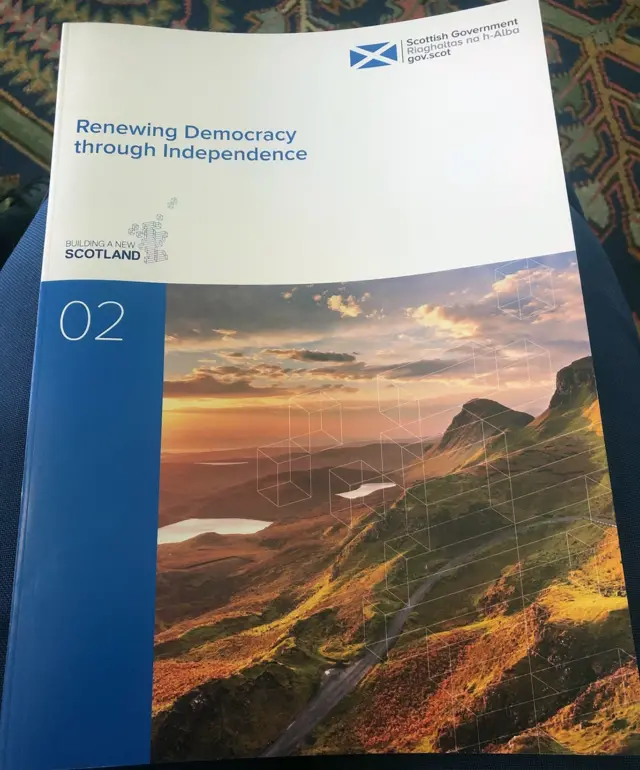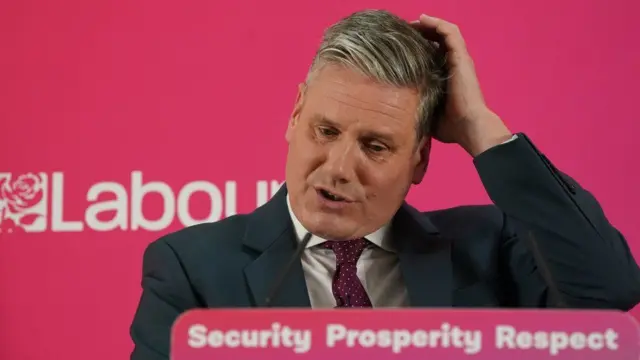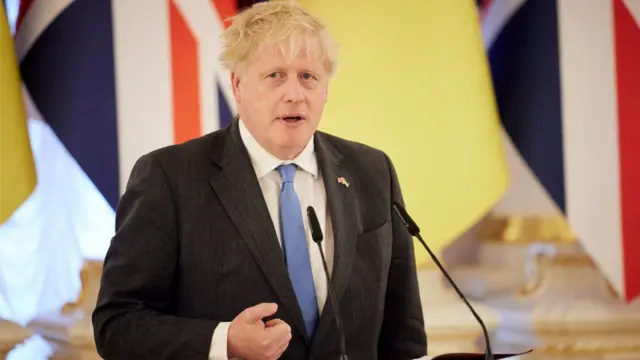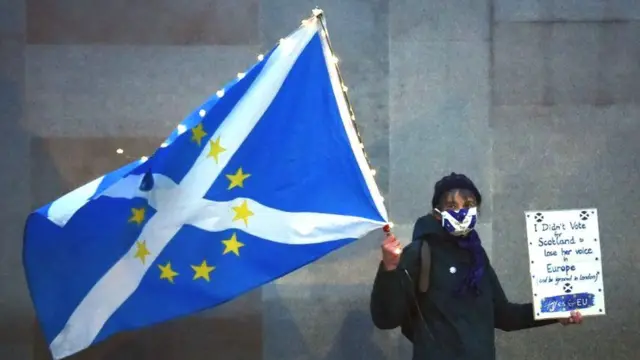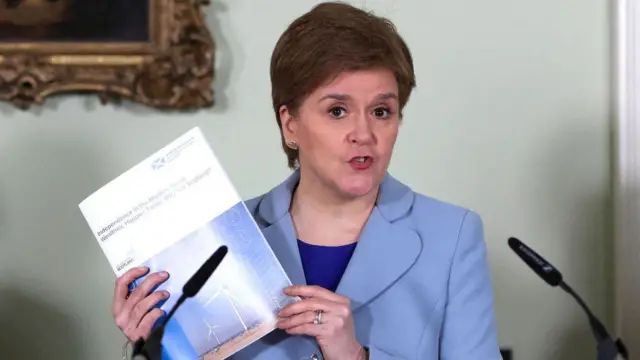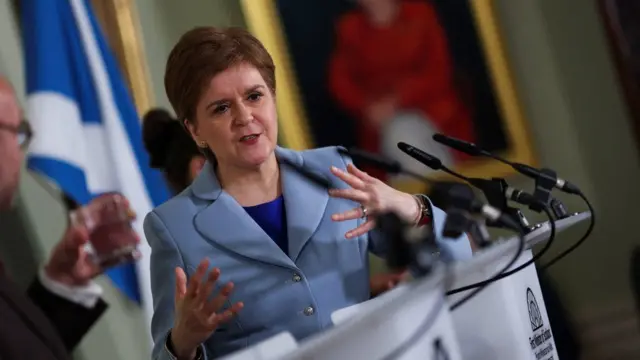Independence paper: Key pointspublished at 12:27 BST 14 July 2022
Allow X content?
This article contains content provided by X. We ask for your permission before anything is loaded, as they may be using cookies and other technologies. You may want to read X’s cookie policy, external and privacy policy, external before accepting. To view this content choose ‘accept and continue’.
- Nicola Sturgeon claims Scotland faces a "stark" democratic deficit as she sets out her latest paper Renewing Democracy Through Independence, external
- The first minister wants to hold a referendum in October 2023, but says the UK government is denying democracy by seeking to block this
- Ms Sturgeon says whoever replaces Boris Johnson will have no democratic endorsement from Scotland
- The FM argues that only independence can fix the democratic deficit, with a change in prime minister likely to shift the UK further away from mainstream values in Scotland
- She argues that independence is the only way to "strengthen and embed" democracy in Scotland
- None of the candidates to replace Boris Johnson have given any indication they would back a vote - and Ms Sturgeon says she believes none of them will be chosen as PM by Scots
- Ms Sturgeon tells the media she will not compromise on the principle of an indyref2, but she will sit down with the new PM to discuss the process for a vote
That's all from us here on the live page team. Have a good afternoon.


